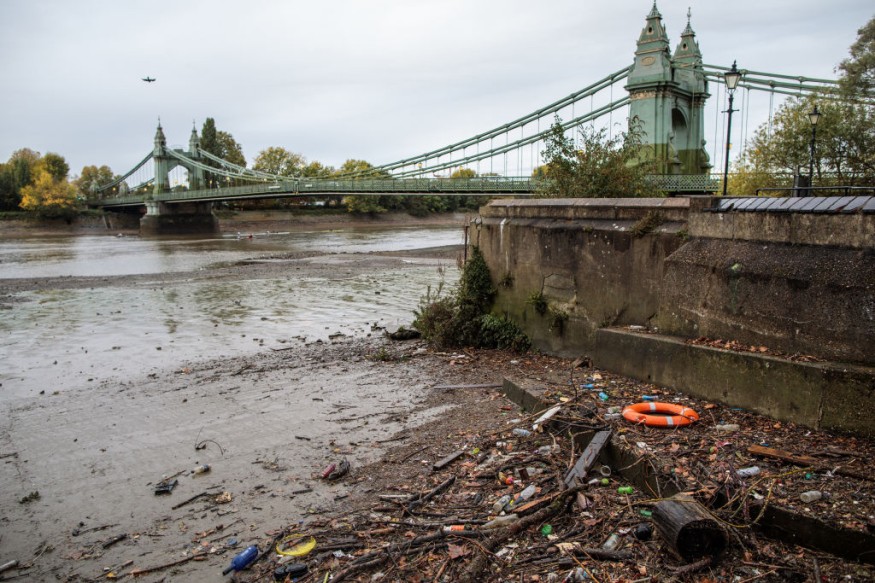
A disgusting 'wet wipe island' the size of a tennis court has formed in the Thames, making the government consider banning the use of the item, especially those that contain plastic.
Wet wipes hardly disintegrate when flushed down the drains and end up in rivers, causing the flow of Thames River in London - England's second-longest river - to change course, according to ScienceAlert. The island of wet wipes sat near Hammersmith Bridge in the Thames, a meter deep or more, said Fleur Anderson, a Labour MP.
During a session of questions on the environment, food, and rural affairs in the Commons, Anderson proposed banning the manufacture and sale of wet wipes containing plastic, The Times of London reported, noting that it needs government backing to become a law.
Thames21, an environmental charity, also calls on the government to take immediate steps and prioritize ban plastic in wet wipes in order to help tackle this pollution ending up in the River Thames and in the wider natural environment.
The Big Wet Wipe Count
Every time it rains in London, the wet wipes stuck in the sewers end up in the river as it overflows. Most of them contain plastics causing blockages in sewage pipes and spills into the river. In the Thames21 and the Port of London's research, it shows that the buildup changes the shape of the riverbed and the wipes ending up on the foreshore break down into microplastics, damaging aquatic life and the Thames' ecosystem.
Furthermore, the charity found that in just under five years, one mound of plastic litter grew by 1.4 meter in height (around 55 inches) and covered the area of two tennis courts. Wet wipes were found in densities of between 50 and 200 per square meters at these hotspots.
Last year, more than 27,000 wipes were collected in just over two days at a different site next to Battersea Bridge.
Rebecca Pow, an environmental minister, urged the members of the public not to flush wipes down the loo drain if they use them and the government should "come up with some suggestions of what we propose to do very shortly."
Nearly 90 percent of the materials in wet wipes were also found in 'fatbergs' - masses of solid waste made of grease and fat that block sewers.
Protect River Thames
The government is currently reviewing the results of a recently-conducted consultation on single-use plastics and plastic wet wipe ban.
In an effort to raise awareness to the community and in response to the government's consultation, Thames21 is also urging the regulation of clear labelling of how to dispose of wet wipes to avoid consumer confusion, help reduce sewage-based pollution ending up in the River Thames, and reduce microplastics in the river system.
"Our volunteers record and clear away mountains of wet wipes every year, as we've seen at this year's Big Wet Wipe Count," said Debbie Leach, CEO at Thames21. "These modern pollutants are harmful for wildlife and people. As people use the River Thames for leisure activities there is a danger that these polluted mounds could affect their health. We are urgently calling on the Government to work faster and do more to end this form of sewage-based pollution that is having a devastating impact on the River Thames and ban plastic in wet wipes."
© 2025 NatureWorldNews.com All rights reserved. Do not reproduce without permission.





